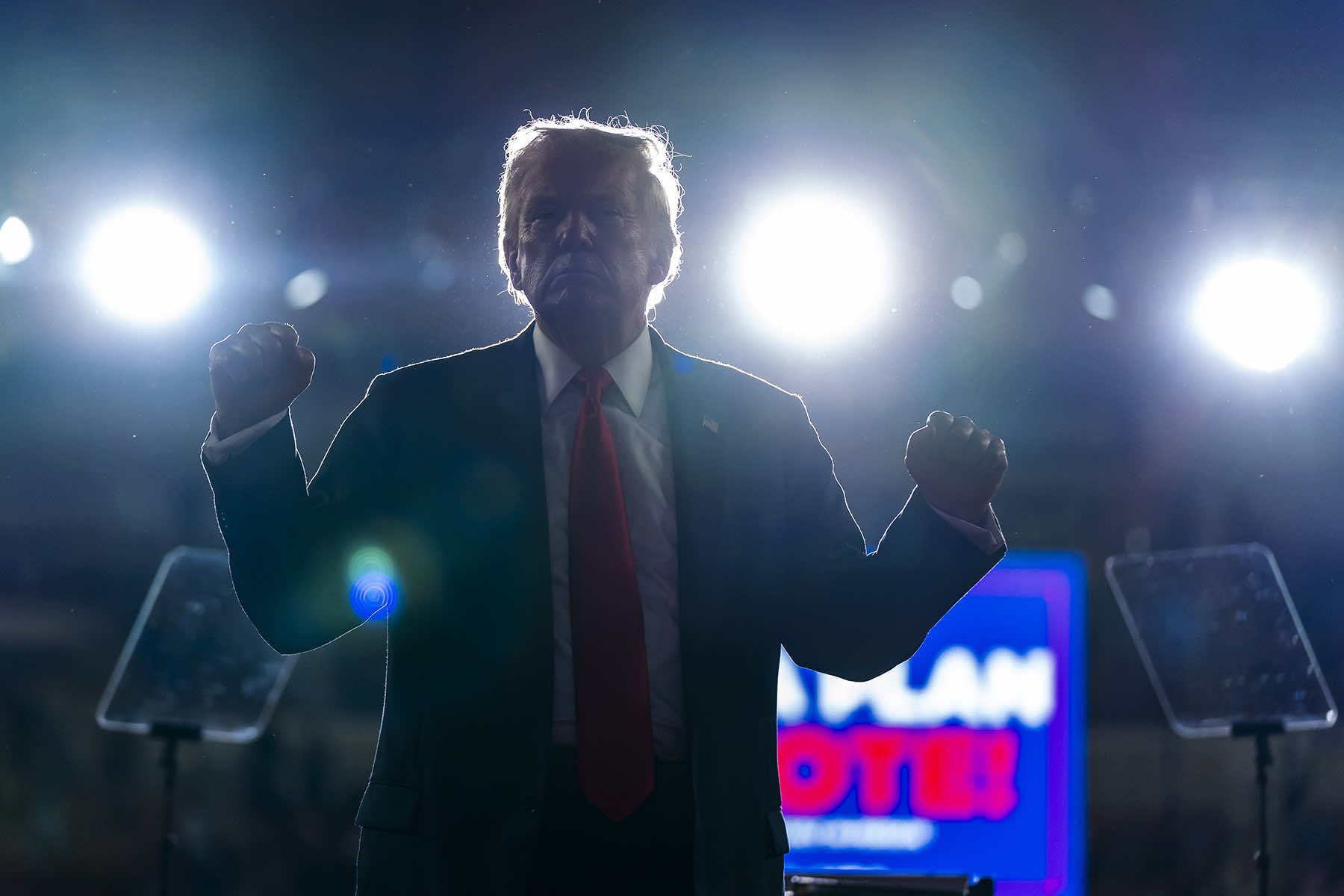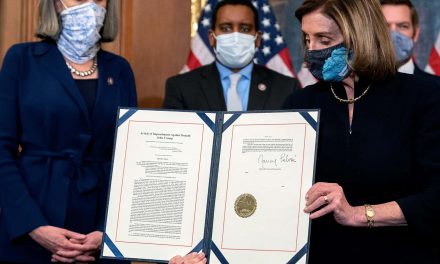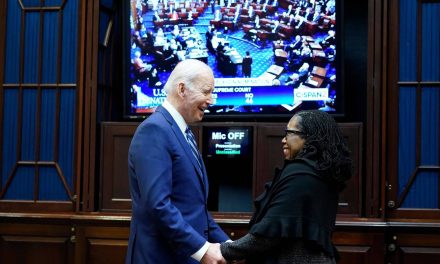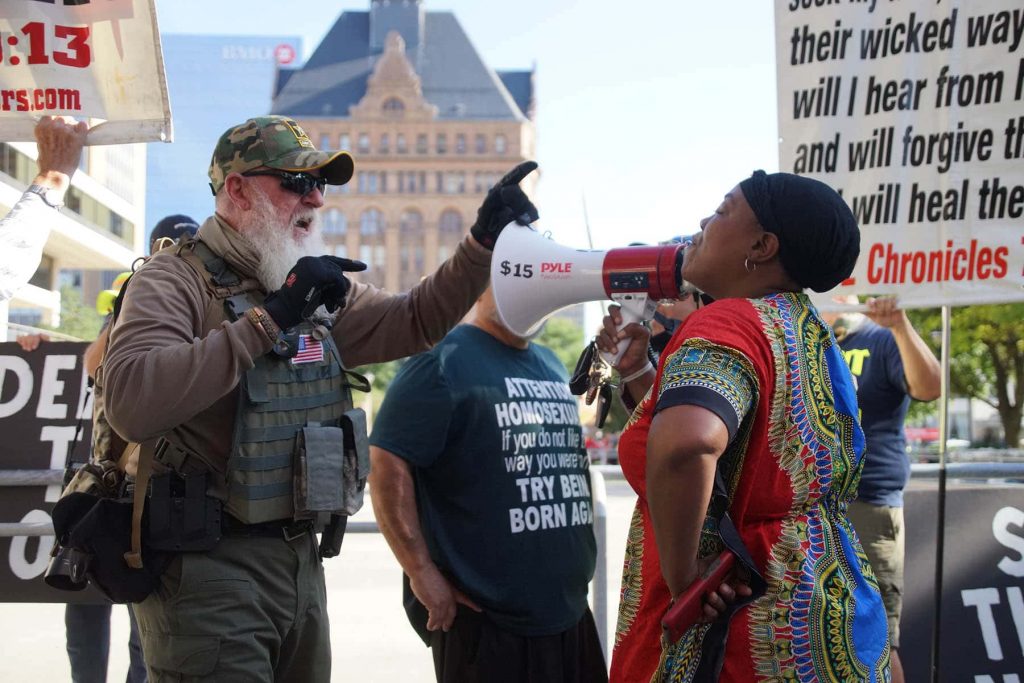
Aaron C. Davis and Carol D. Leonnig of the “Washington Post” reported there is reason to believe that when Trump’s 2016 campaign was running low on funds, Trump accepted a $10 million injection of cash from Egypt’s authoritarian leader Abdel Fatah al-Sisi.
It is against the law to accept direct or indirect financial support from foreign nationals or foreign governments for a political campaign in the United States. In early 2017, CIA officials told Justice Department officials that a confidential informant had told them of such a cash exchange.
Those officials handed the matter off to Robert Mueller, the special counsel who was already looking at the links between the 2016 Trump campaign and Russian operatives. FBI agents noted that on September 16, Trump had met with Sisi when the Egyptian leader was at the U.N. General Assembly in New York City.
After the meeting, Trump broke with U.S. policy to praise Sisi, calling him a “fantastic guy.” Trump’s campaign had been dogged with a lack of funds, and his advisers had begged him to put some of his own money into it. He refused until October 28, when he loaned the campaign $10 million.
An FBI investigation took years to get records, but Davis and Leonnig reported that in 2019 the FBI learned of a key withdrawal from an Egypt bank. In January 2017, five days before Trump took office, an organization linked to Egypt’s intelligence service asked a manager at a branch of the state-run National Bank of Egypt to “kindly withdraw” $9,998,000 in U.S. currency. The bundles of $100 bills filled two bags and weighed more than 200 pounds.
Once in office, Trump embraced Sisi and, in a reversal of U.S. policy, invited him to be one of his first guests at the White House. “I just want to let everybody know, in case there was any doubt, that we are very much behind President al-Sissi,” Trump said.
Mueller had gotten that far in pursuit of the connection between Trump and Sisi when he was winding down his investigation of Russian interference in the 2016 election. He handed the Egypt investigation off to the U.S. attorney’s office in Washington DC, where it appears then–attorney general William Barr killed it.
Brian Schwartz of CNBC also reported that Elon Musk and other tech executives are putting their money behind a social media ad campaign for Trump and Vance, and are creating targeted ads in swing states by collecting information about voters under false pretenses. According to Schwartz, their America PAC, or political action committee, says it helps viewers register to vote. And, indeed, the ads direct would-be voters in nonswing states to voter registration sites.
But people responding to the ad in swing states are not sent to registration sites. Instead, they are presented with “a highly detailed personal information form [and] prompted to enter their address, cellphone number and age,” handing over “priceless personal data to a political operation” that can then create ads aimed at that person’s demographic and target them personally in door-to-door campaigns. After getting the information, the site simply says, “Thank you,” without directing the viewer toward a registration site. Forbes estimates Musk’s wealth at more than $235 billion.
In June the Trump Organization announced a $500 million deal with Saudi real estate developer Dar Global to build a Trump International hotel in Oman. In January 2011, when he was director of the FBI, Robert Mueller gave a speech to the Citizens Crime Commission of New York. He explained that globalization and modern technology had changed the nature of organized crime.
Rather than being regional networks with a clear structure, he said, organized crime had become international, fluid, and sophisticated and had multibillion-dollar stakes. Its operators were cross-pollinating across countries, religions, and political affiliations, sharing only their greed. They did not care about ideology; they cared about money. They would do anything for a price.
These criminals “may be former members of nation-state governments, security services, or the military,” he said. “They are capitalists and entrepreneurs. But they are also master criminals who move easily between the licit and illicit worlds. And in some cases, these organizations are as forward-leaning as Fortune 500 companies.”
In order to corner international markets, Mueller explained, these criminal enterprises “may infiltrate our businesses. They may provide logistical support to hostile foreign powers. They may try to manipulate those at the highest levels of government. Indeed, these so-called ‘iron triangles’ of organized criminals, corrupt government officials, and business leaders pose a significant national security threat.”
In a new book called “Autocracy, Inc.: The Dictators Who Want to Run the World,” journalist Anne Applebaum carries that story forward into the present, examining how today’s autocrats work together to undermine democracy. She says that “the language of the democratic world, meaning rights, laws, rule of law, justice, accountability, [and] transparency…[is] harmful to them,” especially as those are the words that their internal opposition uses. “And so they need to undermine the people who use it and, if they can, discredit it.”
Those people, Applebaum says, “believe they are owed power, they deserve power.” When they lose elections, they “come back in a second term and say, right, this time, I’m not going to make that mistake again, and…then change their electoral system, or…change the constitution, change the judicial system, in order to make sure that they never lose.”
Almost exactly a year ago, on August 1, 2023, a grand jury in Washington DC, indicted former president Donald J. Trump for conspiring to defraud the United States, conspiring to disenfranchise voters, and conspiring and attempting to obstruct an official proceeding. The charges stemmed from Trump’s attempt to overturn the results of the 2020 election. A grand jury is made up of 23 ordinary citizens who weigh evidence of criminal activity and produce an indictment if 12 or more of them vote in favor.
The grand jury indicted Trump for “conspiracy to defraud the United States by using dishonesty, fraud, and deceit to impair, obstruct, and defeat the lawful federal government function by which the results of the presidential election are collected, counted, and certified by the government”; “conspiracy to corruptly obstruct and impede the January 6 congressional proceeding at which the collected results of the presidential election are counted and certified”; and “conspiracy against the right to vote and to have one’s vote counted.”
“Each of these conspiracies,” the indictment reads, “targeted a bedrock function of the United States federal government: the nation’s process of collecting, counting, and certifying the results of the presidential election.” “This federal government function … is foundational to the United States’ democratic process, and until 2021, had operated in a peaceful and orderly manner for more than 130 years.”
The case of the United States of America v. Donald J. Trump was randomly assigned to Judge Tanya S. Chutkan, who was appointed by President Obama in 2014 and confirmed 95–0 in the Senate. Trump pleaded not guilty on August 3.
His lawyers then repeatedly delayed their pretrial motions until, on December 7, Trump asked the Washington DC, Circuit Court of Appeals to decide whether he was immune from prosecution. Chutkan had to put off her initial trial date of March 4, 2024, and said she would not reschedule until the court decided the question of Trump’s immunity.
In February the appeals court decided he was not immune. Trump appealed to the Supreme Court, which waited until July 1, 2024, to decide that Trump enjoys broad immunity from prosecution for crimes committed as part of his official acts. On August 3 the Washington DC, Circuit Court of Appeals sent the case back to Chutkan, almost exactly a year after it was first brought.
Alex Brandon (AP)
Letters from an Аmerican is a daily email newsletter written by Heather Cox Richardson, about the history behind today’s politics














